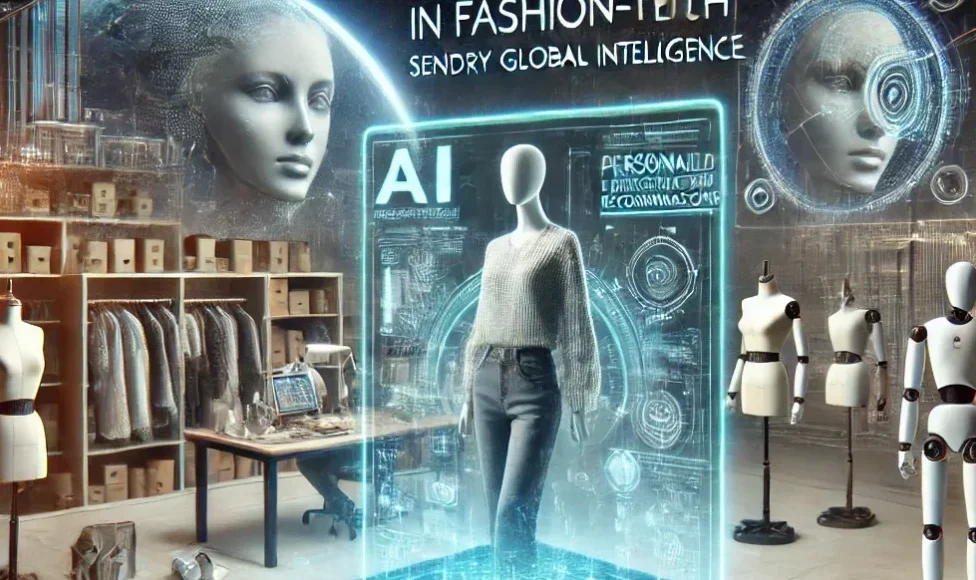The Evolution of Fashion-Tech: Balancing Human Touch and Automation

The fashion industry is undergoing a transformative shift, integrating advanced technologies to enhance customer experiences and streamline operations. This evolution, often referred to as “fashion-tech,” seeks to balance the human touch with automation, ensuring that technological advancements complement rather than replace human creativity and interaction.
Generative AI and Personalized Shopping Experiences
Generative AI is revolutionizing personalized shopping by analyzing vast datasets to generate tailored recommendations that align with individual consumer preferences. Rezolve AI’s Brain Suite exemplifies this innovation, offering personalized shopping assistants and AI-powered marketing tools that provide seamless, customized experiences for retailers globally.
A key component of the Brain Suite is the proprietary large language model (LLM), Brainpowa, engineered specifically for retail and e-commerce applications. Brainpowa delivers precise, brand-aligned responses, minimizing common AI inaccuracies and ensuring interactions resonate with the retailer’s unique voice.
The Brain Suite encompasses several integrated solutions:
- Brain Commerce: Transforms online stores, call centers, social media interactions, and in-store kiosks into personal, conversational, and efficient shopping experiences, enhancing customer engagement and increasing order volumes.
- Brain Checkout: Streamlines the purchasing process with secure, passwordless login and simplified payments, reducing cart abandonment rates and boosting conversion rates.
- Brain Assistant: Provides ongoing, tailored support to customers, assisting with product care, shipping options, and returns, thereby fostering long-term loyalty and increasing customer lifetime value.
Notably, the Brain Suite supports conversational engagement across 95 languages, enabling retailers to cater to a diverse, global customer base. This multilingual capability facilitates smoother checkout processes and comprehensive AI-supported customer support, contributing to reduced cart abandonment and enhanced customer satisfaction. integrating these advanced AI solutions, retailers can transform their customer engagement strategies, streamline operations, and drive sales growth, all while maintaining alignment with their brand identity and values.
The impact of AI on consumer behavior is undeniable. During a recent holiday season, AI influenced 19% of global online orders, showcasing its significant role in driving sales and enhancing customer satisfaction. Additionally, small businesses using AI-driven email campaigns have seen an average click-through rate increase of 15%, highlighting its effectiveness in customer engagement.
Virtual Try-Ons and AI-Driven Recommendations
The integration of virtual try-ons and AI-driven recommendations has redefined how consumers shop. Virtual try-on technology allows customers to visualize how garments will look and fit without physically wearing them. This not only improves the online shopping experience but also reduces return rates. For instance, Google’s generative AI powers virtual try-on features that enable consumers to see clothing on a diverse range of body types.
AI-driven recommendations further personalize the shopping journey. By analyzing browsing history, previous purchases, and emerging fashion trends, these systems suggest products that resonate with individual tastes, leading to increased conversion rates and more satisfied customers. Fun fact: 70% of shoppers are more likely to return to a retailer offering personalized product recommendations, making this an essential tool for small businesses looking to build customer loyalty.
Consumer Preferences for Seamless Tech Integration
Today’s consumers prefer technology that integrates seamlessly into their shopping experiences over purely digital products. They value innovations that enhance convenience and personalization without overshadowing the human aspects of service. LVMH’s AI Factory, for instance, focuses on internal enhancements to improve customer experiences and operational efficiency, rather than solely developing customer-facing AI tools.
Additionally, consumers are finding creative ways to repurpose existing technologies. For example, Gen Z has adopted the iPhone’s Notes app to log, organize, and pre-plan outfits, demonstrating a demand for practical tools that blend effortlessly into daily life. Interestingly, a survey revealed that 64% of shoppers expect brands to use technology to enhance their experience, yet only 45% feel brands are meeting this expectation—a clear opportunity for small businesses to stand out.
Brand Investments in Tech Tools
Fashion brands are heavily investing in technology to enhance operations and customer interactions. These investments aim to streamline processes, improve supply chain transparency, and deliver personalized customer experiences. LVMH’s AI Factory, for example, develops adaptable algorithms that luxury brands can leverage to enhance customer experiences and optimize operations.
Similarly, companies like Brunello Cucinelli are embracing AI to create immersive, narrative-driven online experiences. These initiatives merge human craftsmanship with artificial intelligence, reflecting the brand’s luxury ethos and cultural philosophy while delivering high-touch digital experiences. For small businesses, even simple tools like AI-powered chatbots can save up to 30% on customer service costs while providing 24/7 support—a game-changer for those with limited resources.
Balancing Human Touch and Automation
While automation and AI offer numerous benefits, maintaining the human touch is critical in the fashion industry. Consumers still value personal interaction, creativity, and the bespoke service that comes from human advisors. Brands must strike a balance where technology enhances human capabilities rather than replacing them. This ensures that the essence of fashion—creativity, personal expression, and human connection—remains intact as the industry embraces technological advancements.
The future of fashion-tech lies in seamlessly blending technology with human creativity, but this evolution comes with its own set of challenges. As brands adopt AI tools and automation, they also introduce potential vulnerabilities, from data breaches to system misconfigurations. Proper deployment and robust security measures are essential to safeguard sensitive customer data and maintain trust.
At Sentry Global Intelligence & Consulting Group, we specialize in the expertise to ensure secure and efficient implementation. Our team is here to help your brand navigate the complexities of fashion-tech while minimizing risks and maximizing impact. Contact us today to learn how we can support your journey toward a secure, innovative future in fashion-tech.


